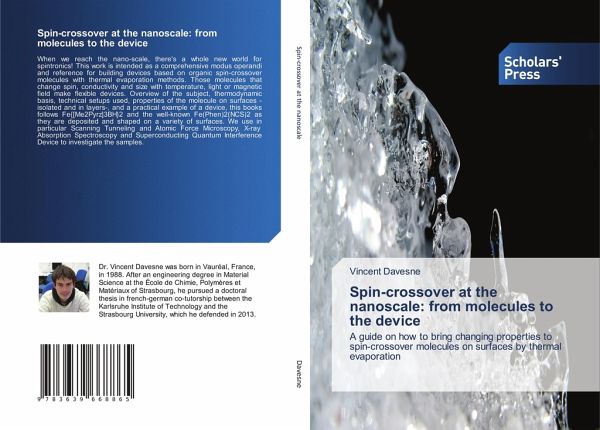
Spin-crossover at the nanoscale: from molecules to the device
A guide on how to bring changing properties to spin-crossover molecules on surfaces by thermal evaporation
Versandkostenfrei!
Versandfertig in 6-10 Tagen
53,99 €
inkl. MwSt.

PAYBACK Punkte
27 °P sammeln!
When we reach the nano-scale, there's a whole new world for spintronics! This work is intended as a comprehensive modus operandi and reference for building devices based on organic spin-crossover molecules with thermal evaporation methods. Those molecules that change spin, conductivity and size with temperature, light or magnetic field make flexible devices. Overview of the subject, thermodynamic basis, technical setups used, properties of the molecule on surfaces -isolated and in layers-, and a practical example of a device, this books follows Fe{[Me2Pyrz]3BH}2 and the well-known Fe(Phen)2(NC...
When we reach the nano-scale, there's a whole new world for spintronics! This work is intended as a comprehensive modus operandi and reference for building devices based on organic spin-crossover molecules with thermal evaporation methods. Those molecules that change spin, conductivity and size with temperature, light or magnetic field make flexible devices. Overview of the subject, thermodynamic basis, technical setups used, properties of the molecule on surfaces -isolated and in layers-, and a practical example of a device, this books follows Fe{[Me2Pyrz]3BH}2 and the well-known Fe(Phen)2(NCS)2 as they are deposited and shaped on a variety of surfaces. We use in particular Scanning Tunneling and Atomic Force Microscopy, X-ray Absorption Spectroscopy and Superconducting Quantum Interference Device to investigate the samples.












